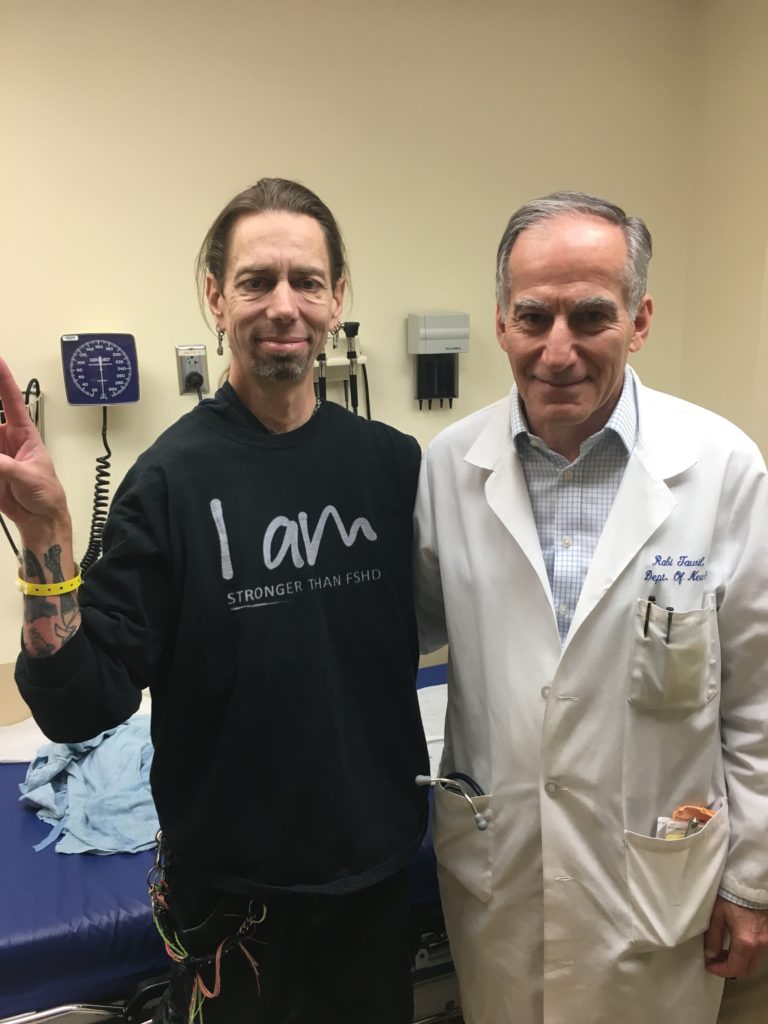
To crack the code of FSHD, patients are absolutely essential
All of the breakthroughs—the discovery of the genetic causes, understanding why some patients vary so greatly in the severity of their symptoms, teasing out the biochemical pathways that could point to future treatments—were made because patients stepped up to the plate.
Too often, we hear patients say they’ll volunteer when there’s a treatment. But we will never get to a treatment unless patients participate in fundamental research now. FSHD is uniquely human, so no laboratory mouse can ever fully model the disease. The genetic “package” that causes FSHD is found only in people. We owe an enormous debt to the patients who give DNA samples. Who submit to long interviews and exhausting physical tests. Allow a surgeon to cut out a small muscle sample. Who fight claustrophobia to lie in the narrow bore of an MRI machine.
Equally important are patients’ family members, both affected and unaffected, who provide the best experimental controls because of their shared genetic and environmental backgrounds. A parent or sibling who has very mild symptoms may hold the key to understanding the factors that protect against the full-blown development of FSHD symptoms in a more severely affected family member.
We are more hopeful today than ever before that a treatment is within sight. We cannot guarantee when that treatment will arrive, but here’s one thing we guarantee: If you volunteer for research, your participation will without question help move us a step closer to that day.
Scientific Overview of FSHD
Read the latest on wikipedia
Glossary of Scientific Terms
Webinar with Doris Leung, MD PhD, on MRI insights into FSH muscular dystrophy
Here’s the recording of our FSH Society webinar on August 1, 2018. Dr. Leung is a neurologist at Kennedy Krieger Institute Center for Genetic Muscle Disorders and an assistant professor in… Read More »
Study uncovers new proteins involved in regulating FSHD-linked gene
By Rachel Tompa / Fred Hutch News Service A new study has revealed more players in the pathway of facioscapulohumeral muscular dystrophy, or FSHD, the most common form of muscular… Read More »
UC Irvine recruiting volunteers for study
Volunteers who are 18 to 55 years of age with FSHD are needed for a study to evaluate functional mobility. The principal investigator is Jay Han, MD, of the University… Read More »
DUX4-suppressing therapies are nearing the clinic
From our 2018 FSHD Connect conference, researchers present their work on therapies to suppress the toxic DUX4 gene. Two companies may be going into clinical trials in 2019. This is… Read More »






